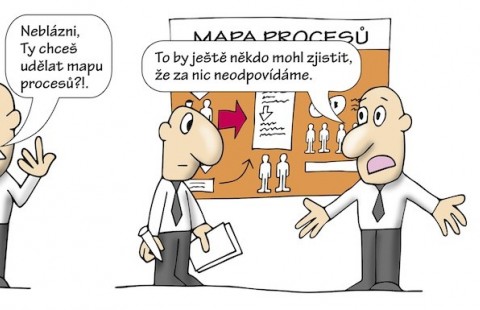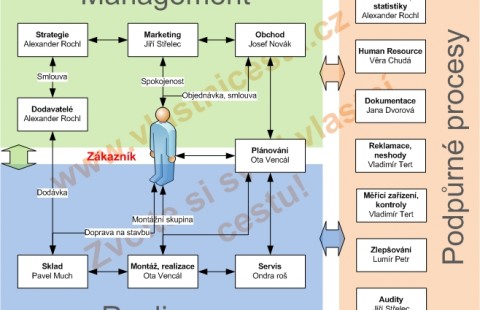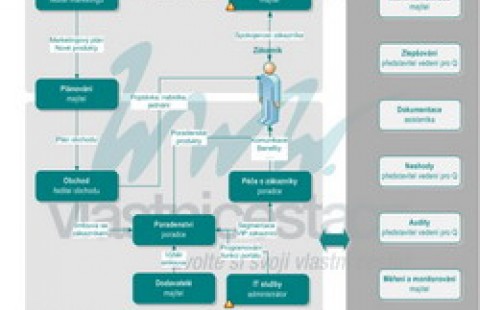There is more and more work. It keeps increasing in volume. Your employees want more money no longer, are not interested in bonuses and would have nothing of overtime. They would not hear either an explanation or an order by the manager. Can such a situation be resolved? Is there still a possibility to incentivize the employees? Yes, it can and there is, but forget about those standard motivation factors.
Motivation is a frequent requirement we hear form the managers. Yet recently we have seen this requirement appear with very constraining conditions. How are we supposed to incentivize our employees when the motivation as we know it no longer works? To put it more precisely, we mean that traditional standard motivation that has been currently used. They describe the condition roughly with the following words:
- employees want more money no longer
- nobody is interested in bonuses - meal tickets, life assurance, shares, ….
- they have no interest in more work for the company
- no longer they want to take part in sports or corporate events
- and so on.
If we leave out the possibility that the manager has failed to judge the situation correctly or the team has for once made an odd pose to avoid changes, then the manager has to admit the company is in a total crisis. And yes, a burnout syndrome is a possibility, too.
Let us admit a crisis
With the first sign of demotivation and disinterest in the financial remuneration, it is appropriate, without delay, to check your employees´ overtime work, their individual performace and - of course - look into the interpersonal relations. For they can also cause a completely averse attitude, for example, as a little rebellion against the unpopular boss.
Note: it sometimes suffices the boss intends to put the capacities in order and set the team´s performance adequately. This is, by the way, a very undesirable phenomenon indeed, especially in teams where the fact that the team operates at half speed only is being hushed up.
Mostly, there tends to be a number of negative factors at work simultaneously, which all indicates the management and teams are clearly in a crisis. Once in a crisis, we have to act accordingly and without dealy no matter what. In crisis you cannot manage your company in the same old established manner practised so far. For if the crisis is to last longer, it may bring the company to close their business. It will begin with the best workers departing and end with the company´s insolvency.
Engage creativity into motivation
The motivation practices have to be changed in the same manner as the style of management. It does not mean forgetting about the findings of the psychologist Abraham Harold Maslow - the Maslow pyramid. It works pretty well. However, I cannot apply the standard motivation practices right out of the book of incentives of the HR department. They all have mostly been tested out anyway.

The Real | Interim Manager for Your Changes

Manager work model

Time management - making use of time effectively

Jak správně tvořit mapu procesů

Modelling and setting the processes and procedures - ISO 9001

Training - preparation of the SWOT analysis and strategy

Company Management System of Quality Step by Step - ISO 9001

Process map acc ISO 9001 - business offer

IT staff communication
Let us consider the situation in which the company has a great increase in the number of orders, projects, simply put: there is more and more work. People want money no longer. They have a lot of overtime work and refuse any extra assignments that they would not manage to fulfil, if that is so, I have to engage creativity and look for brand-new methods of motivation. Here are some tips:
Detect where they do needless work
In the situation like this, employees can only see the extra work that keeps coming. Therefore, they sometimes set their minds on the routine work, because they can easily tell what they have done. Sadly, they do not realize the work they do can be useless. Let us take a worker who calculates quotations for prospective customers at the rate one per hour as an example. Once he or she has sent it out, the prospective customer will immediately require its modification. The worker will make calculations for another hour. And so what will happen is that up to 5 quotations are calculated for one uncertain customer with 5 working hours lost. Ultimately, the customer will turn the quotation down. Instead, they should have established the price/modification ratio that they could have given to the customer in five sentences thus saving 4 hours of business time.
Similarly, an employee gets down to doing a data analysis. From 09.00 do 15.00 they are doing calculations, making diagrams. They put off getting all other needed information, and after 15.00 they begin urging the colleagues for that information so that they can complete the data analysis. Unfortunately, at that time nobody is going to provide it. Then comes the current well-known communication - “nobody has time to prepared the information I need". Again, if they had thought everything through thoroughly at 9.00 and asked their colleagues for what they needed, they would have been given everything during the business day and could have finished the analysis by the end of the shift.
I recommend the managers to monitor their employees and identify where they do unnecessary work. Then, guide them and show them how to do the same work effectively or have them do an exercise in effectivity. They will learn something new and save their capacity and nerves.
Cut down on paperwork
As there is more and more work, it gets difficult to fulfil all the processes that were set for the company´s normal operation at 100%. All office work has been designed to provide a certain level of comfort to other teams, the management and evaluation. If you take a careful look at the processes or job descriptions, you will always find spots where the paperwork can be curtailed. By curtailing the paperwork you will unfailingly make your employees happy. This is not saying "do not follow the processes" but have a look at them with the redundant paperwork and critical points in mind. There is no bypassing the critical points, yet some other points are not that important. And it is exactly here where you can make work easier for your employees.
A short-term change of environment
There is another tip, an entirely different one. Try to imagine a worker who is already salaried very well. He spends a lot of time working, much more than the usual 8 hours. He gets all the set bonuses and extras. When he comes home, he is so exhausted he goes off right on the sofa after supper. He is responsible and wants the company to manage everything all right. If this condition lasts very long (months, if not years), do you think such a worker will be interested in more money or other bonuses? Quite likely not. He would rather escape from this high-performance machine and have a rest.
Have you ever experienced the effect of quick relaxation in completely different environment? I have. Say, you live in the mountains, take them very much for granted and you do not even realize what a relaxation they have to offer. Then you can leave, perhaps, for the weekend only and go the seaside, completely switching your environment. You depart Friday and as early as Saturaday morning you can relish the joys of the sea, arriving back home Sunday afternoon. True, you are physically tired afterwards, but mentally refreshed. It works really well. There is no need to head for the seaside of all the places, it can be a luxury hotel in Prague with a gustation dinner for two.
All the above tips have to be correctly communicated though. Accusing an employee of doing needless extra work and telling him he is a fool will not do the motivation trick. By the way, commmunication indeed is the principal motivation factor and the means of management.
Problems to be solved without delay
A crisis situation can be managed well. You can also make a deal with the workers and motivate them. You only have to resolve the problems at hand immediately, finalize the good solution and never make fools of the employees. To play fair pays off - with fair people, naturally.
Let us have your views on motivation in crisis situations, perhaps as your contribution to the discussion box.

